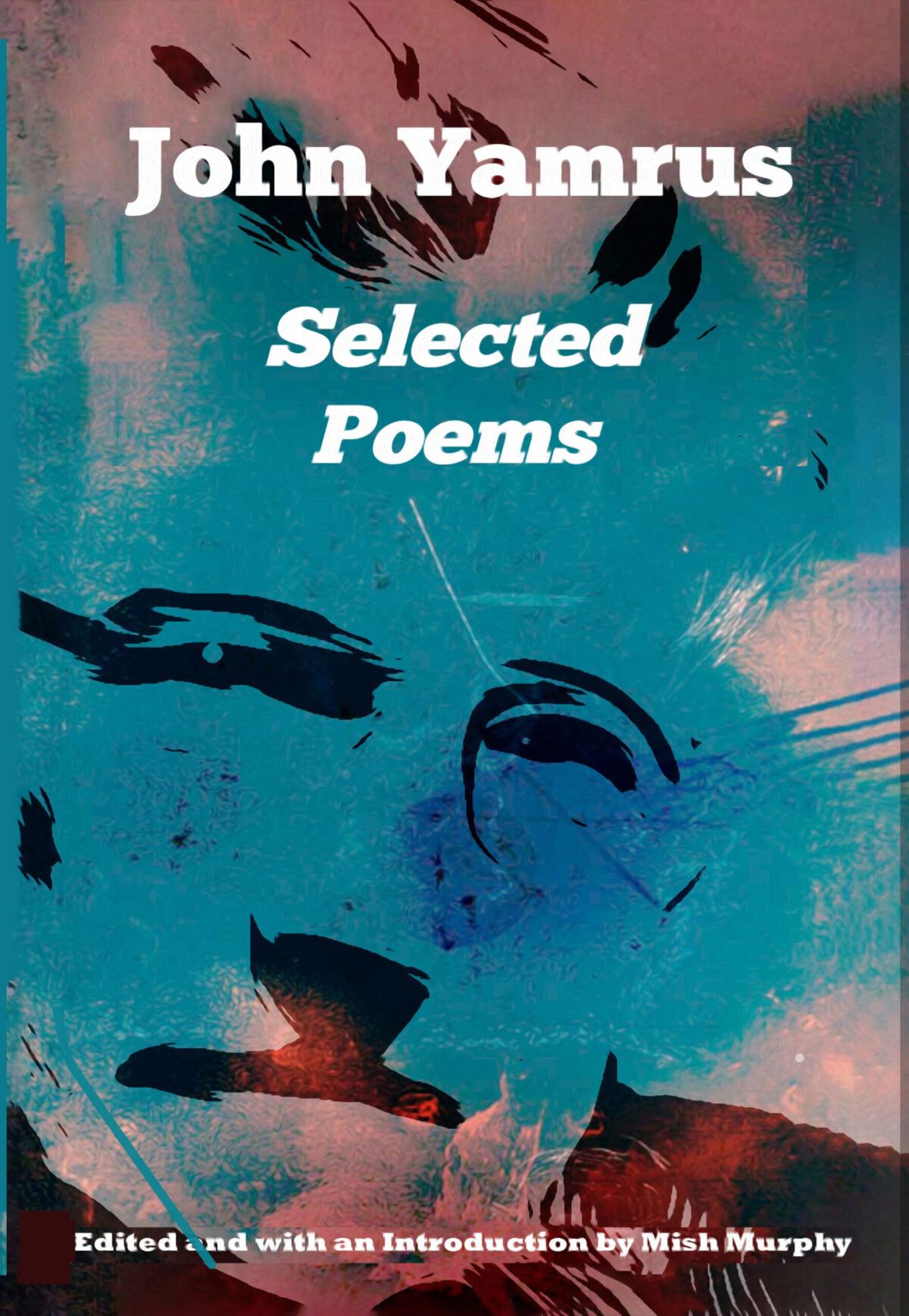When I was asked to review John Yamrus’ Selected Poems, I allowed myself to remember when I started writing poetry on January 1, 2009. I recall the date exactly because it was a particularly bad day for my mother, who was dying of ALS. To manage my grief, I did something I had done never before—I wrote a poem. It wasn’t much of a poem, just a little jaunt down memory lane about a beach vacation with my young children, but it made me feel better to create something. From that moment on, I knew that poetry had special powers that weren’t reserved for scholars and MFA candidates. It was a healing force. It was a force of challenge.
I began reading Charles Bukowski and e.e. cummings. Their poetry introduced me to a clarity that I thirsted for, a solace I found nowhere else, but needed deeply in my life. The economy and directness of their writing surprised and thrilled me.
In 2011, a poet friend of mine suggested I read the poetry of John Yamrus for examples of a modern minimalist form I was introducing into my own work. My friend said Yamrus had practically invented the form. It was like finding a shaman. I absorbed his poems, took margin notes, and used them as examples. I was fortunate enough to start correspondence with John, who was generous with his critique and guidance.
However, I don’t think you should read John’s poems because he’s a nice guy. You should read Yamrus’s work because the poems are what many of us need in our lives, a no-holds-barred look at ourselves, a laugh, and a fist fight. Yamrus’s work proves that poetry is meant for everyone, not just other poets, not just scholars and teachers.
A few of the things that keep the everyday Joe and Jane from reading other poetry is the tedium of the language and experimentation with odd forms. Another one of my mentors, the late Tony Hoagland, was greatly opposed to poetry being written for the sake of poetry. Yamrus doesn’t write to be published, he writes to address what he likes, particularly dogs, and what bugs him. Here’s an example of a poem that addresses the latter:
the streets
are
dark,
and
it’s not
only
the night.
A scholar can unpack this ten-word poem into a thirty-five hundred word essay comparing it to Yamrus’s other work, the work of other poets, discuss the form, and give a history of its source. But people who aren’t poetry scholars can read this poem and extract exactly what they need from it. The reader can face her or his own personal darkness with this short poem providing a portal to those thoughts.
One of Yamrus’ poems sheds light on his own personal epiphany regarding his work:
Jesus, it
felt like
the kiss of death
when the professor wrote
and said she liked my poems
because they were amusing and irreverent
and i
wanted to
go out and shoot
myself in the back yard
just so i could break the chain
it’s not
that she wasn’t
a nice lady and was
paying me nicely to speak
at the school and i told her that
she should really take that money and
hire
three real poets instead,
as i was just a fake who got up
every morning, had my coffee, fed
the dog and came down here to fight with
the
words the
world the poems
and you.
When you get down to it, John Yamrus is one of the poets you should recommend to anyone who is suffering, anyone who wants to take her or his grief and find a home for it. I know you will enjoy John Yamrus’s Selected Poems because, even if you don’t know it now, it’s the book of poetry you’ve been waiting for.
Click here to buy SELECTED POEMS by John Yamrus

